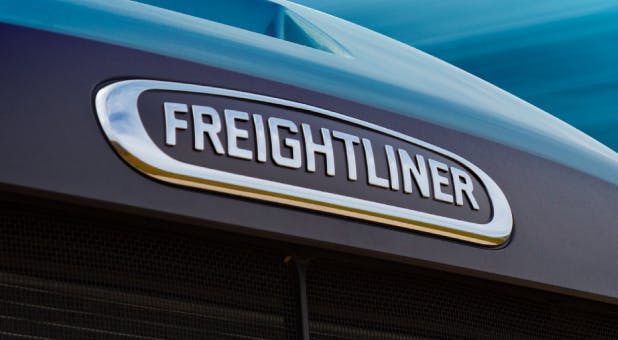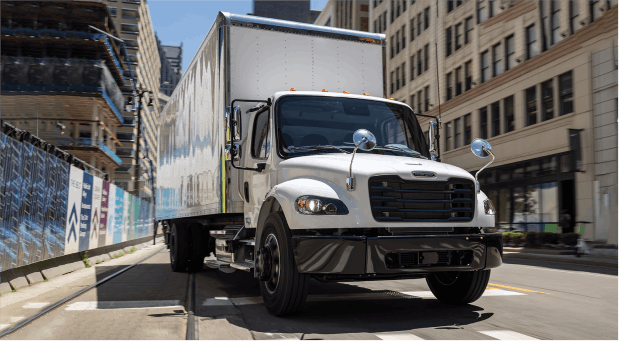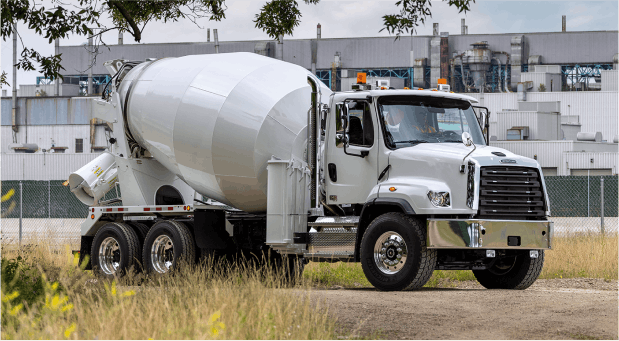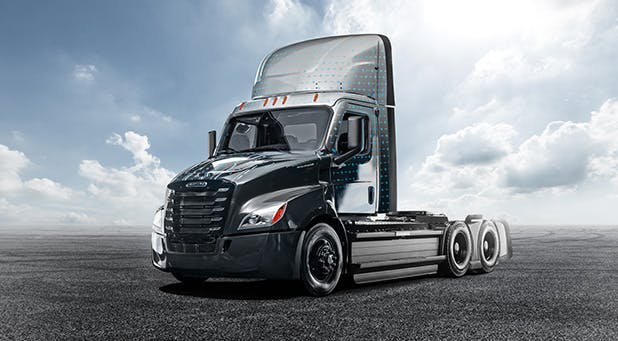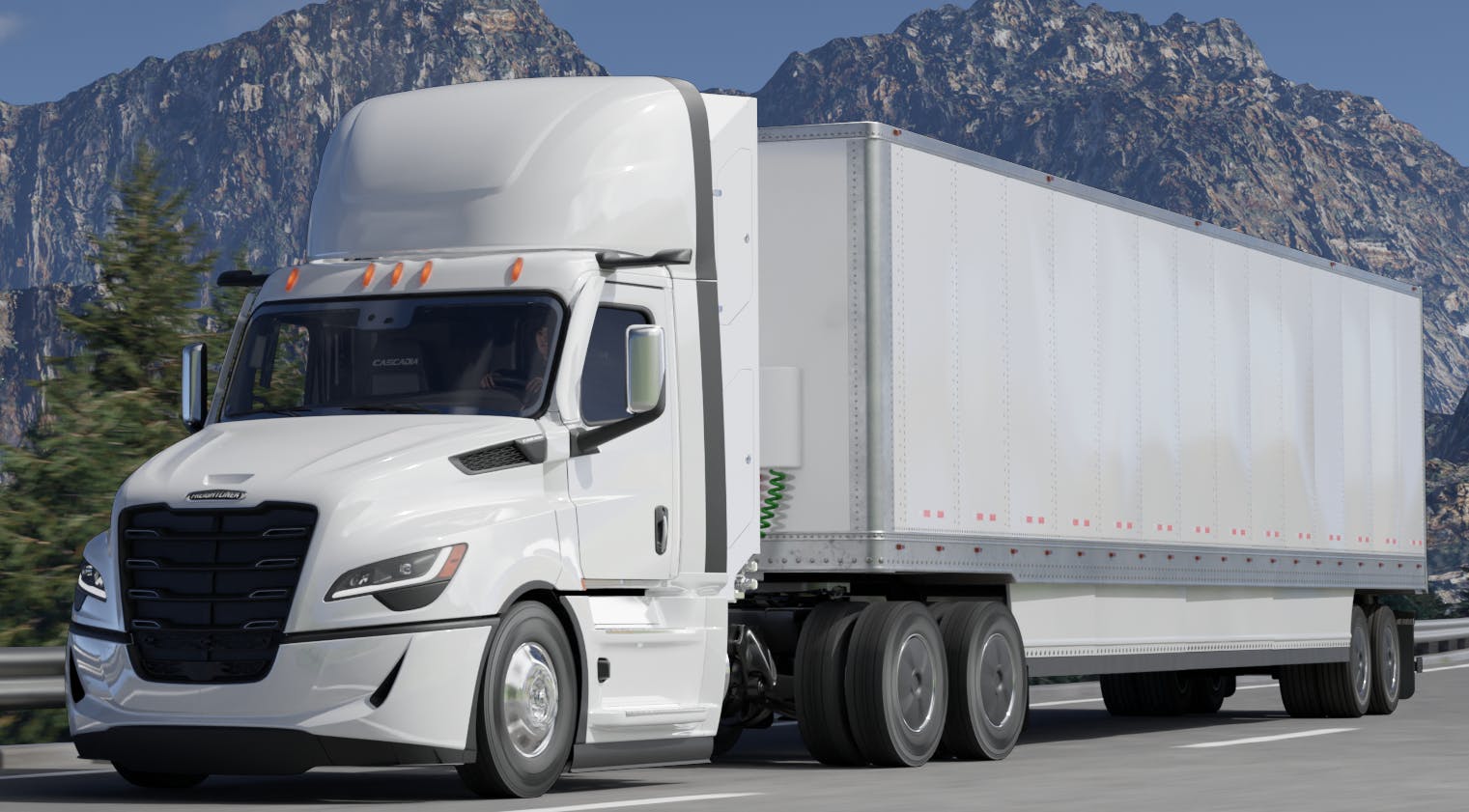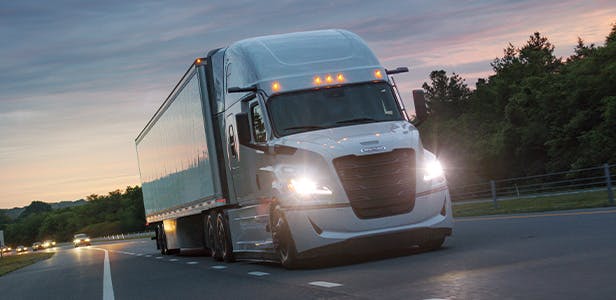Planning Your Electric Vehicle Charging Infrastructure
Freightliner Electric Trucks
The world of electric trucking is full of opportunities, but getting there isn’t about flipping a switch. You need to build the right foundation first.
Laying the groundwork for your charging infrastructure takes research – and smart decisions about everything from utility rates to electric vehicle charging station equipment and charge management software. It can seem like a lot at first. But we can help. Here are some key things to consider when planning your charging infrastructure, so your transition from miles per gallon to miles per kilowatt hour is as smooth and rewarding as possible.
IDENTIFYING YOUR CHARGING NEEDS
It all starts with your business
To build your charging infrastructure, you need to know more than just how many electric trucks you plan to operate. You need to know how you plan to use them. For example: What will their average route length be? How long will they have to charge? Will you have just a few trucks making deliveries once a day, or will you have an entire fleet running around the clock? Answering these questions early is essential to making sure that you have the right number of electric vehicle charging stations – and exactly what your business needs.
A key early step: Engaging your utility company
Building your charging infrastructure is also about making the right connections with your utility provider – ideally about a year in advance. Your utility can help you assess your site’s existing infrastructure, reduce future electricity costs and learn from any charging solutions they’ve already deployed for other businesses.
TIP: You can never start planning your charging infrastructure too early. Working with your utility, designing your site and securing permits are all necessary steps that contribute to your total deployment time.
CHOOSING THE BEST ELECTRIC VEHICLE CHARGING STATION EQUIPMENT FOR YOU
Electric vehicle charging station equipment is one of the most important elements of your infrastructure plan. Selecting the right option depends on a range of factors, including the number of trucks that you need to charge, the size of their batteries and their charging dwell time.
Charging station types
For commercial enterprises, electric vehicle charging stations boil down to two main choices: AC Level 2 and DC Fast Charge. Level 2 electric vehicle charging stations are suitable for common applications, especially in fleets that can charge trucks overnight. DC Fast Charge stations allow trucks to charge in a shorter amount of time by utilizing DC rather than AC power.
|
Charger type |
Voltage |
Power (kW) |
Typical use case |
|
AC Level 1 |
120 V |
1.9 kW |
Consumer EV |
|
AC Level 2 |
208 - 240 V |
7.2 - 19.2 kW |
Commercial vehicles with longer dwell times |
|
DC Fast Charge - DCFC |
Usually 480 V AC input |
20 kW - 500kW |
Commercial vehicles with larger batteries and shorter dwell times |
TIP: No matter what type of electric vehicle charging station equipment you choose, it’s important to appropriately size your solution for your site’s needs. Starting conservatively can help you reduce up-front costs.
Off-grid power backup options
Connecting charging stations directly to the electric grid provides a highly reliable source of power. However, during your planning process, it can be helpful to determine how your site would operate in the unlikely event of an outage. If you determine that your site requires backup power, there are plenty of options to choose from:
- Stationary battery storage
- Permanent natural gas generators
- Tie-in connections for portable generators
- Vehicle batteries that equip vehicles with a charge that exceeds daily operational needs
If your business is looking for near-100% CO2-free power sources, you can also go with on-site solar panels with batteries or opt to purchase renewable energy credits. Depending on local incentives, offsetting carbon emissions from non-renewable backup solutions can be a cost-effective choice.
TIP: We can help you determine if clean-fuel credits are available to your business as well as how valuable they are to your bottom line. In some cases, the financial benefits of clean-fuel credits can be significant.
MANAGING AND OPTIMIZING ENERGY USE
Utility rate schedules
Plugging in your trucks is simple. But how you’re billed for the power they use can vary widely. For example, utility companies can employ time-of-use rates that charge you based on the time of day you consume electricity. Since demand is greater during peak grid usage, plugging in your truck at 4:00 p.m. is usually much more expensive than charging it at 4:00 a.m. Utilities can also employ demand charges – additional fees based on your highest energy use over a defined period. Minimizing these types of costs is easy with the right calculations – which is exactly what you’ll get with charge management software.
Harnessing the power of charge management software
Charge management software (CMS) is like the brains of your charging stations and is designed to help your trucks charge efficiently. By avoiding charging vehicles during peak times, your CMS can help you pay less for energy – and save you time by keeping things simple. While you can use the CMS that comes with your charging station, many customers opt for a CMS that’s Open Charge Point Protocol-compliant. That means you can use your OCPP-compliant CMS with any electric vehicle charging station equipment, allowing for greater flexibility down the road.
TIP: Reducing your electric bill can save you money. But you can also find significant savings by taking advantage of local, state and federal grants. Be sure to talk with your utility partner and the eConsulting team at Freightliner as you start planning.
KEEPING YOUR CHARGING INFRASTRUCTURE RUNNING STRONG
Charging infrastructure maintenance
Electric trucks are generally considered to be easy to maintain. But what about electric vehicle charging station equipment? The good news: It’s simple and straightforward, too. Here’s what you can expect in terms of maintenance:
- Coolant level checks
- Coolant flushes
- Cables: inspection (weekly), repair (as needed)
- Connector plugs: inspection (daily), cleaning and repair (as needed)
- Contactor replacements (usually after several years)
- Air filter replacements (1-3 years, depending on environment)
While the above maintenance list is important to consider, your level of responsibility can vary based on your charging station model as well as your service agreement.
STARTING UP YOUR ELECTRIC FUTURE
We can help you figure out where you want to go – and help you get there, too. Our eConsulting services supporting Freightliner electric trucks offer everything from no-cost phone consultations to site visits and fully customized planning services.
Ready to get started? Contact your local dealer to learn more. We’re ready to show you what’s next.

